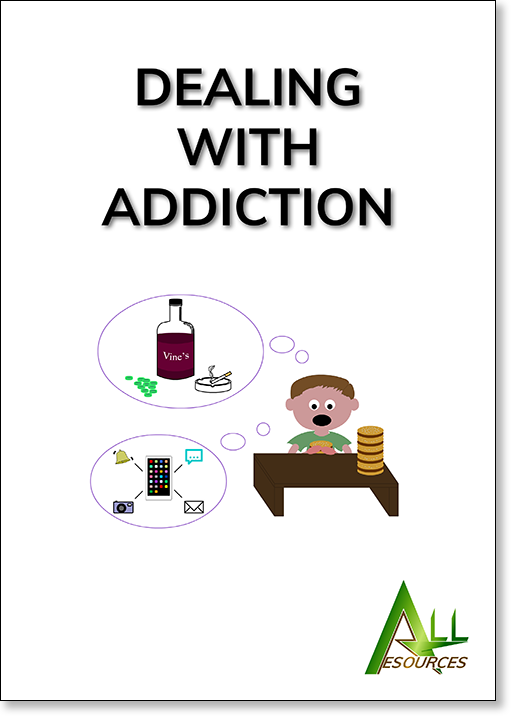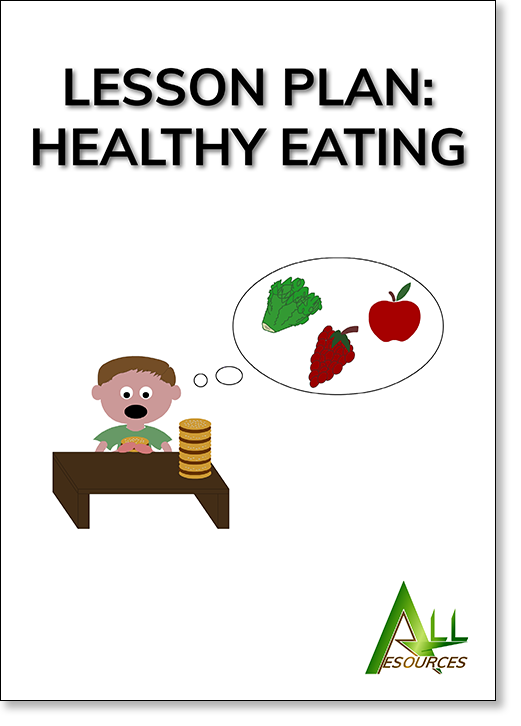Eating Disorders
An eating disorder is a symptom of a much bigger problem. It is usually associated with our body image, our self-consciousness, our sense of identity and our inner self-esteem.

Dealing with Addiction
Providing the facts about substance abuse, gambling, gaming & food addiction as well as how to help people recover from addiction.
- Age range: 12 years and upwards
- Category: Schools
- Last revised: 2021
- Pages: 83
- Illustrated throughout
Hard copy: £35.99 add to basket
Eating Disorders Lesson Plans

Healthy Eating
This lesson plan covers healthy eating, different food types and how to develop a healthy diet.
- Age range: 12 years and upwards
- Category: Lesson plan
- Last revised: 2021
- Pages: 15
- Duration: 55 mins – 1 hour
Hard copy: £10.99 add to basket
What Are Eating Disorders?
Eating disorders are complex diseases caused by a range of factors and with a variety of symptoms. They are serious mental illnesses and can be life-threatening.
There is a close relationship between anxiety and eating disorders and it is an extremely challenging condition to overcome. Eating disorders are prevalent in many cultures and nationalities and can affect men and women.
We all need to eat to stay alive. It is important that the food we eat provides a balanced diet which meets all our nutritional needs. However, sometimes our relationship with food becomes unbalanced or unhealthy and this can lead to eating disorders.
Types of Eating Disorders
The most common eating disorders are:
- Bulimia — binge eating followed by purging.
- Anorexia nervosa — abnormally low weight due to distorted body image and warped weight perception.
- Binge eating — eating excessively huge amounts of food in a short space of time.
- Orthorexia — an unhealthy obsession with healthy eating and exercise.
- Food addiction — compulsive consumption of certain foods (usually high fat/high sugar).
Causes of Eating Disorders
As with all mental health conditions, eating disorders have a variety of causes such as:
- Negative body image
- Hormone problems
- Low self-esteem
- Being required to lose or put on weight due to a certain profession (ballet, horse racing, gymnastics, wrestling, rowing etc)
- Family problems, unhappy childhood or trauma
- Dramatic life changes (starting school/university, divorce, major illness or injury)
- Grief (death of a loved one, job loss)
- Pressure to look a certain way due to artificial representations in the media
Eating Disorders Symptoms
Eating disorders have a wide range of symptoms including:
- Obsession with calorie-counting and food content
- Depression
- Weight fluctuation
- Avoidance of social events and family gatherings
- Chronic dieting
- Fixation with exercise
- Bizarre eating patterns — only eating certain foods
It is vital that people with eating disorders get the medical help and support they need to regain control of their lives.



